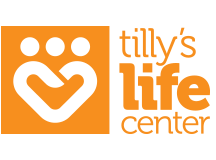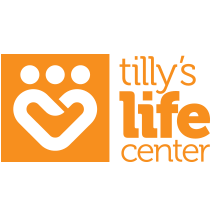
09 Aug Eight Pillars of Holistic Wellness, & How to Achieve It
With all of life’s many troubles and triumphs, the truth that always stands is that health and wellness take the top priority. While familiar to adults, for teens this can be a new and confusing concept that takes time to learn. Everything from the simple — getting enough sleep — to the complex, managing their nutrition, can contribute to teen health and wellness. And as obvious as it might seem to a teen, executing all of the necessary components that come together to keep us thriving, is a tall order. So to break it down, and help you teach the teen in your life how to take care of themself, we have outlined the eight pillars of holistic wellness that are vital to improve teen mental health.
#1 Physical
Health as we know it has a lot to do with taking care of the body. This means prioritizing sleep, exercise, and hygiene. With distracting devices, it can be especially tough for teens to get the sleep their growing bodies and brains require — at least eight to ten hours per night to function properly. On top of that, they need at least 30 minutes of exercise a day to be healthy and boost endorphins that help them stay positive. As their bodies change, teens also need to pay special attention to hygiene habits. To help your teen reach these goals, start by setting a good example and noticing if they need advice on how to take care of their bodies. Sharing a few of your tried-and-tested tricks can really make an impact on their holistic wellness.
#2 Nutritional
Bodies need fuel, especially growing ones! While junk food can be tempting for most teens — fruits, vegetables, proteins, and fiber are all part of what is necessary to keep young bodies running smoothly. As a caretaker, it is your job to make sure kids are eating adequately portioned meals regularly. Do not assume your teen is eating well unless you see it for yourself. To make things easier, prioritize having family meals as often as possible — at least once a day. To help your teen plan for their meals out of the house, be sure to give them the tools they need to have healthy and well-rounded food options. Whenever possible, go grocery shopping together to help them pick out healthy food that they are excited about and work with them to create snacks and meals that they can reach for throughout the week.
#3 Emotional
Your teen’s mental health is vital to their holistic wellbeing. It is imperative that teens start learning to identify, understand, and communicate their complex feelings — some of which they might be experiencing for the first time. To help them cope, offer yourself as a support system and walk them through any additional resources or services they might need. While some teens might benefit from a journal that can help them explore their emotions, others might need to speak with a guidance counselor or therapist to have a safe space to get confidential adult feedback. In the interim, check in with teens regularly about how they are feeling and pay attention to sudden or sustained changes in their emotions.
#4 Intellectual
School is your teen’s “career” at this point in their life. But you should also encourage them to seek intellectual stimulation outside of the school setting. You can try engaging them during family time — by playing intellectual games, working on puzzles, watching an informative documentary, or reading a book and discussing it together. If your teen needs additional support in their studies, help them find tutoring resources on campus or through a private or community organization. If they excel in school, ask them to consider tutoring others. Another option is for teens to start taking community college courses or advanced placement classes if they need more customized education.
#5 Social
Teenagers need interaction and connection with peers in order to build an identity and foster a community. In many cases, teen mental health relies on having others their own age to talk to and feel understood. It might be harder for some teens to find friends they click with, and can be even tougher if they have to work through challenges with bullying or falling out with existing friendships. In order to make this easier on them, try to get them involved in something that makes them feel whole and allows them to bond with other like-minded teens. Perhaps joining a school club, playing a sport, or getting involved with art or music could pique your teen’s interest and provide a worthwhile social outlet.
#6 Spiritual
Whether or not religion is something your teen engages with, spirituality is an important part of life that entails crafting a sense of belonging and purpose. Teens need meaning in their lives and can practice accessing it through self-reflection, meditation, mindfulness, or prayer. To get your teen started, offer to teach them about the ways you choose to create meaning and purpose in your life. Remind them of family or community values and instill self-care as a priority. For something more hands-on, offer to help your teen find a mentorship opportunity or connect them with a resource that can support them in the way they are most interested in finding their purpose.
#7 Financial
While it might seem like an adult responsibility, teens are growing up and it is important to develop healthy beliefs around money . As they approach adulthood, you should start educating them on the ways of the world so they are prepared for their future. Helping them learn about finances now can be helpful later for decisions they make about career paths, college, accumulating savings, and even how they approach their overall holistic wellness. Teach them techniques to save allowances or budget their spending from an after school job. As they get older, work with them to start planning how they will approach college or instead if they will tackle working full time after high school. Planning and understanding finances now can make them feel more confident and ready to be responsible for their whole lives to come.
#8 Environmental
Your teen’s surroundings are crucial to their sense of self. From the home, to the outside world — teens need their community to be a part of their support system. Outside the home, teens can explore nature with family and friends to connect to the world. At home, having a safe and organized space can help them feel in control. Something as simple as making their bed and putting away their laundry can help them feel a sense of accomplishment and a peace in the cleanliness and order of their environment.
At Tilly’s Life Center, teen health and wellness is the core purpose of our mission. Our classes and workshops teach social and emotional learning, to address holistic wellness priorities and improve their mental health, for their current lives, as well as the many years ahead. To learn more, visit https://tillyslifecenter.org/


